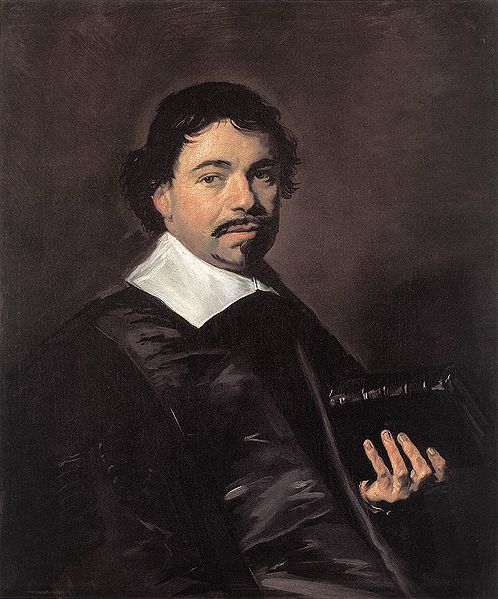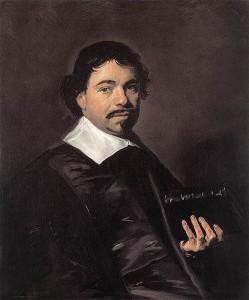
Libraries
Libraries
The conversion of the Indians and Gentile, by Johannes Hoornbeek
Johannes Hoornbeek was a controversial theologian of the old Netherland Reformed Church of Calvinist line. His work during the seventeenth century was of special importance for the comparative study of religions, due to his interest in systematically spreading the Christian faith among the Gentile peoples of the whole world. Since it is a posthumous edition, the volume brings a very interesting biography that reflects both the theological training of the author as well as his political and philosophical position , which leads him to defy authors like Descartes.
Portrait of Johannes Hoornbeck by Frans Hals (c.1645)
De conversione Indorum et Gentilium, a treaty formed of two books, is a text written in Latin which is out of the ordinary: on the one hand, it postulates an imperial vision of the regions of the known world. Catholicism is the opposite to the heterogeneous ‘otherness’ of the various faiths of all continents, from ancient Egyptian and Greco-Latin, to the then recent American. On the other hand, the second book is a novel treaty on the methods necessary for the conversion of the ‘pagans’ or ‘gentiles’. Scholars, who study, within the history of religion or ecumenical theology, phenomena such as the Extirpation of idolatries in the West Indies, will find in this volume a necessary counterpoint to the practices examined in the practice of Dominican or Jesuit Orders.
It is, therefore, a volume that today provides enormous information to think on the theological conception of the different cultures, as well as to perceive better the dogmatic and critical horizon that guided the work of attracting new believers. There will be an interesting consideration on the role played by Greco-Latin patristic, as well as the hermetic writings attributed to Hermes Trismegistus, aand the creative application of rhetoric for the persuasion and conversion of the ‘gentiles’.


